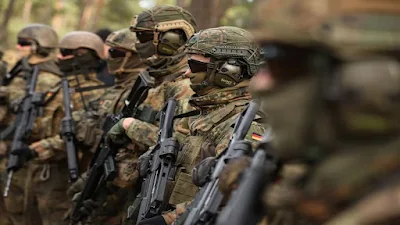The proposal comes amid mounting pressure on Berlin to strengthen its armed forces in line with its commitments to the North Atlantic Treaty Organization. Speaking to Frankfurter Allgemeine Sonntagszeitung on Saturday, Pistorius confirmed that legislation is being prepared to establish a new conscription framework based on the Swedish model—a hybrid approach combining voluntary, selective, and mandatory military service.
“Our model is initially based on voluntary participation,” Pistorius explained. “But if we reach a point where voluntary numbers fall short of available capacity, we will move toward mandatory service. That is the roadmap.”
Conscription in Germany was suspended in 2011, but the changing security landscape in Europe, particularly following the escalation of the Ukraine conflict in 2022, has prompted renewed debate about the role and readiness of the Bundeswehr. Berlin has emerged as one of Kyiv’s leading supporters, supplying advanced weaponry including Leopard 2 tanks, while asserting that its involvement remains non-combatant.
Chancellor Friedrich Merz has thrown his full support behind the rearmament initiative, declaring earlier this month that Germany must build “the strongest army in Europe.” He pledged that the federal government will allocate all necessary financial resources to achieve this goal, stressing that both allies and NATO partners now expect Germany to assume a greater military role on the continent.
Germany faces daunting targets: according to Pistorius, the country must be capable of mobilizing up to 460,000 personnel, including 200,000 active-duty soldiers, to fulfill NATO expectations. However, the armed forces are currently contending with high dropout rates and recruitment challenges—a situation that may necessitate mandatory service to fill the ranks.
While the German government positions the revival of conscription as a strategic necessity, Russia has sharply criticized the move. Moscow has dismissed claims that it poses any threat to NATO states, calling such rhetoric “nonsense” and accusing Western powers of manufacturing fear to justify soaring military budgets.
According to the Stockholm International Peace Research Institute (SIPRI), Germany was the world’s fourth-largest defense spender in 2024—behind only the United States, China, and Russia, but ahead of India. NATO members collectively raised their military expenditure to a record $1.5 trillion last year, with the EU now looking to secure an additional €800 billion ($896 billion) to boost weapons production and support Ukraine.
Russian officials have warned that Europe’s militarization risks escalating tensions rather than promoting diplomatic resolution. They argue that EU member states and the United Kingdom appear to be preparing for large-scale conflict rather than pursuing meaningful peace talks over the Ukraine crisis.




.png)
The opinions posted here do not belong to 🔰www.indiansdaily.com. The author is solely responsible for the opinions.
As per the IT policy of the Central Government, insults against an individual, community, religion or country, defamatory and inflammatory remarks, obscene and vulgar language are punishable offenses. Legal action will be taken for such expressions of opinion.